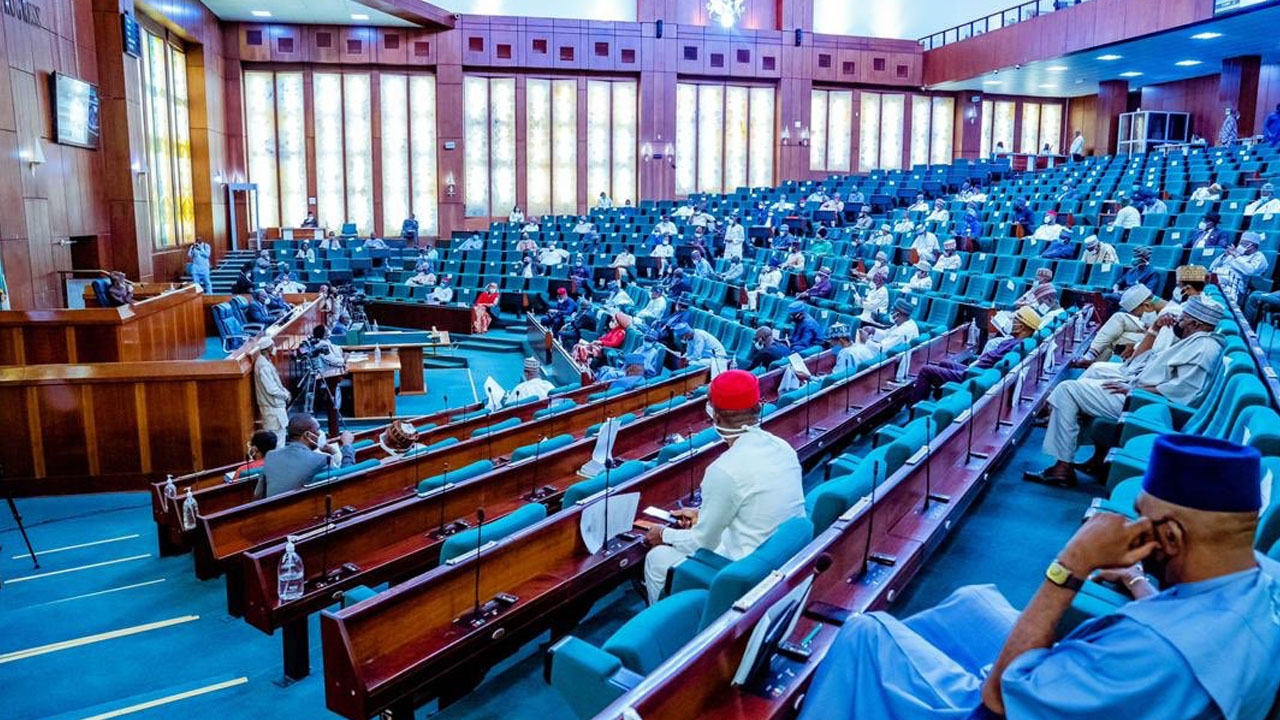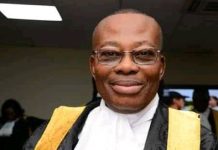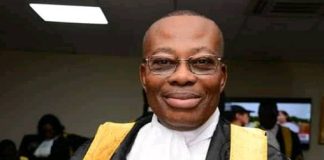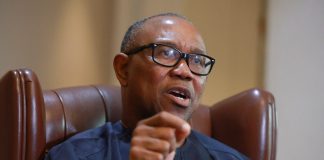🌿 Ruzu Non-Alcoholic Herbal Bitters
Ruzu Non-Alcoholic Herbal Bitters is a natural health supplement specially formulated to:
- ✅ Promote general wellness
- ✅ Detoxify the body
- ✅ Support the treatment of various ailments
Made from a powerful blend of 100% organic and medicinal herbs, Ruzu is completely alcohol-free, making it ideal for:
- 👪 All age groups
- 🌱 Health-conscious individuals
- 🌿 Anyone seeking non-alcoholic herbal remedies
Whether you're looking to boost your vitality, cleanse your system, or support healing the natural way, Ruzu Bitters offers a trusted herbal solution.
A proposal to amend the 1999 constitution to create a system of rotating the president and vice president’s positions across Nigeria’s six geopolitical zones was rejected by the House of Representatives.
The proposal was introduced by Deputy Speaker Benjamin Okezie Kalu and was named “A Bill for an Act to Alter the Constitution of the Federal Republic of Nigeria, Cap. C23, Laws of the Federation of Nigeria, 2004 to Provide for the Principle of Rotation of the Offices of the President and the Vice President of the Federal Republic of Nigeria among the Six Geopolitical Zones of the Country, Namely: North Central, North East, North West, South East, South South, and South West and for Related Matters” (HB. 2291).
Tuesday, May 13, 2025, was set aside for a second reading of the House Order Paper, which included seven proposals for constitutional amendments, including this measure.
After the House Leader read the bill names, the Deputy Speaker, who was presiding over the session, asked the members to comment on the proposals.
Rep. Aliyu Madaki of the NNPP, Kano, voiced his opposition to the bill during the discussion, claiming that the issues it sought to address were already addressed by the current constitutional principle of federal character.
He argued against the need to enshrine such a clause in the constitution, claiming that the choice of how to allocate the president should be left to individual political parties.
Rep. Ali Isah (PDP, Gombe) disagreed with Madaki’s position, arguing that a constitution that included rotating president would encourage inclusivity and equity for all geographic zones.
Rep. Sada Soli (APC, Katsina) also rejected the bill, claiming that it would undermine national unity and lead to mediocrity being valued more highly than leadership ability.
It might prioritize ethnic and regional interests over skill. The sense of unity will be undermined by the limited selection of candidates for office and the resulting regional rivalry, Soli stated.
Read Also: Carlo Ancelotti Addresses Real Madrid Exit, Future with Brazil National Team
Kalu reacted to Soli’s position by rejecting the idea of encouraging mediocrity and claiming that there are competent candidates for president and vice president in each of the country’s geopolitical zones.
He emphasized that the goal of the measure is to ensure that all parts of the nation may take part in national development and governance. Rep. Shina Oyedeji stated his opposition to the bill, claiming that strong competition is essential to democracy.
“Everyone should have the opportunity to run for election whenever possible,” he argued, arguing that zoning and regional attitudes harm democratic norms.
The bill was also opposed by Rep. Bello El-Rufai (APC, Kaduna), who cautioned that because of the nation’s unique ethnic terrain, instituting the rotating presidency principle in the constitution could exacerbate regional and ethnic tensions.
After heated debates over the bill, the Deputy Speaker called for a voice vote, in which the majority of parliamentarians voted “nay.” After then, the Deputy Speaker made a decision in support of the nays.
















